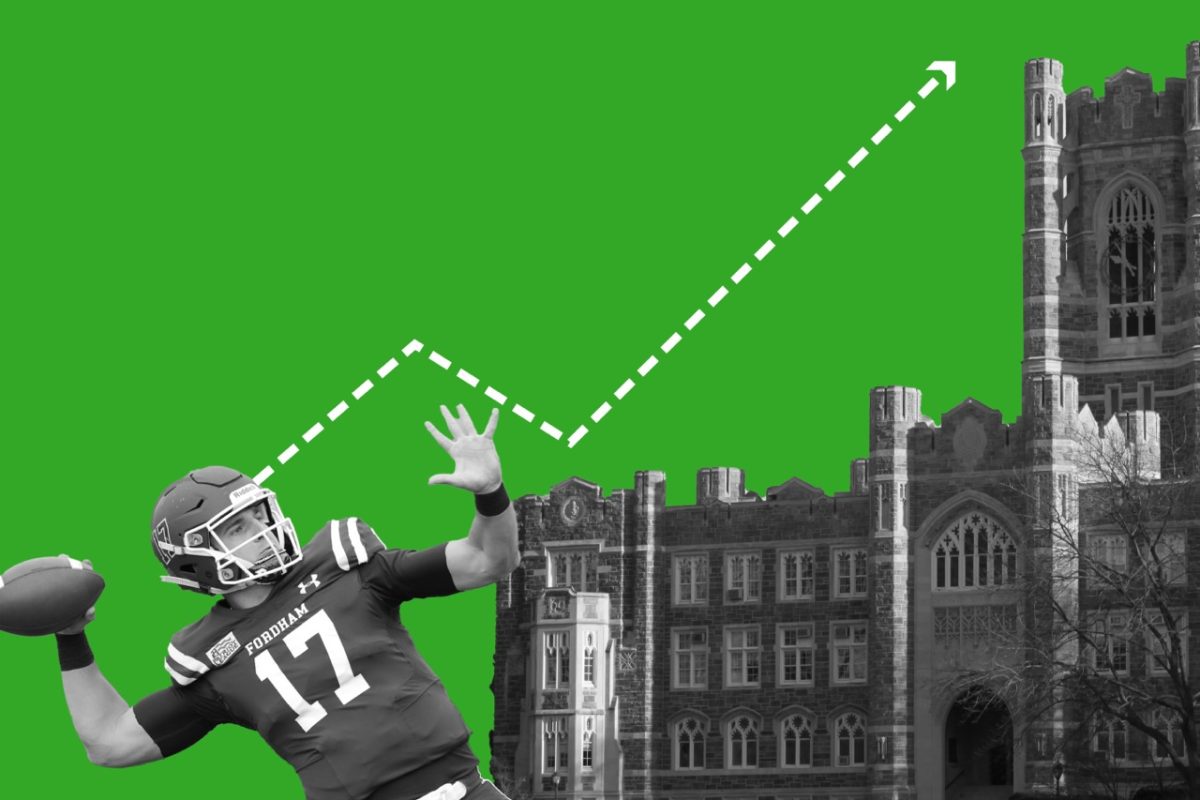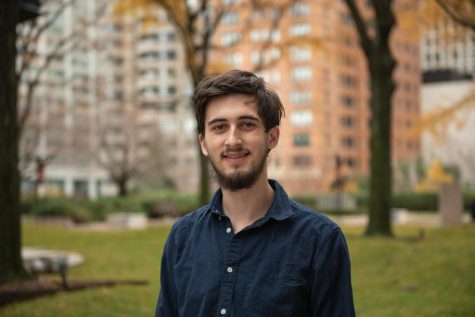College athletics, especially at a Division 1 (D1) school like Fordham, are a big time commitment. Sports consume their participants’ lives, forcing them to live and breathe nothing but their athletic careers. Because of that, it’s time for universities to consider paying their athletes.
Life as a university student is already stressful, as one is forced to juggle their GPA, internship applications, extracurriculars, a social life, a good night’s sleep, and “adulting” for the first time in their life. Now imagine adding 20 hours of athletic training every week on top of that — college just became 10 times harder.
Besides not being able to allocate enough time to get a job or have a social life, college athletes can rarely find the time to be a student. Even as a high school athlete, my schedule was school, tennis, workout, tennis again, shower, and finally finishing any homework or studying I had to do.
At the end of the day, universities are profiting off these student-athletes.
One season, I decided to swim for my high school’s swim team, and by the end of just a couple of hours of swimming, I was exhausted. If three to five hours of practice and training were too much to endure, I can’t imagine how physically exhausted college athletes are, as the demands of school and sport amount to more than a full-time career.
The career of a college athlete does not begin on their first day of training on campus. For many, their athletic careers start at as young as five or six years old. Further, some football players from Fordham and Rutgers universities with whom I spoke told me that, in high school, they were multisport athletes, meaning they trained year-round, working their bodies hard even outside of football season.
When student-athletes begin their collegiate careers, it does not become any easier; the pressure of maintaining athletic scholarships weighs heavily on students’ shoulders. They must remain focused and committed, spending most if not all of their time on sports and academics, with little opportunity to partake in other aspects of the college experience such as participating in clubs or applying to internships.
Currently, the NCAA does not allow college athletes to receive any compensation from schools for their athletic performances. However, the Name, Image, Likeness (NIL) deal, which was created in 2021, allows college athletes to have paid partnerships with brands or sponsors.
The NIL allows college athletes to profit off themselves through products, advertisements, public appearances and other publicity. Although the NIL deal allows players to receive some compensation, it may not be equivalent to that which the player contributes to their school team.
At the end of the day, universities are profiting off these student-athletes. Publicity is a great way to make a little extra cash, but at least some of the millions of dollars in revenue that schools make off of college sports should go to their student-athletes. Even though they are fulfilling dreams of attending college to play their favorite sports, constant training can become a bit draining.
Student-athletes have to face both the mental exhaustion of being a student and the physical exhaustion of being an athlete.
When your sport becomes your whole life, it can easily become overwhelming. It is necessary that we find a way to abolish the rules of the NCAA and urge it to allow college athletes to profit from their sports careers.
On top of the 20 hours a week student-athletes spend on their sporting careers, they also must dedicate hours to their academics. The NCAA requires student-athletes to be enrolled in a minimum amount of classes, typically 12 credit hours per semester. In those classes, they have to uphold a minimum GPA requirement to continue playing for their college or university.
Students know how mentally draining school can become. October marks midterm season, and it feels as though as soon as one exam or assignment finishes, the next one rolls around the corner. I have spent a lot of time studying, and I could not imagine having the added pressure of attending practice or training for long hours every day.
Student-athletes have to face both the mental exhaustion of being a student and the physical exhaustion of being an athlete, essentially working two jobs at once. The NCAA needs to recognize that by mandating that schools compensate their players — they can certainly afford to.
Big 10 schools such as Rutgers, Michigan State and Purdue universities, make as much as 58 million dollars per year in revenue just for football. Last year, Fordham made over 37 million dollars in revenue for college sports.
This money is made from the work of the athletes who have put consistent time and effort into their sport for years. They should receive compensation for their time and energy, especially since it has come at the expense of other aspects of their lives and college experiences.
Universities already receive a large amount of funding from tuition and fees, sponsored research, private grants and more. There is enough funding that at least a fraction of the revenue made from sports can be allocated to student-athletes.
Ultimately, the lack of compensation for D1 athletes, like ours here at Fordham, needs to be addressed. The NIL deal has made strides toward equity, but it is not enough. Student-athletes are entitled to at least a portion of the revenue made from college athletics by their schools. They train and play like a full time job — it’s time they be paid like it.


